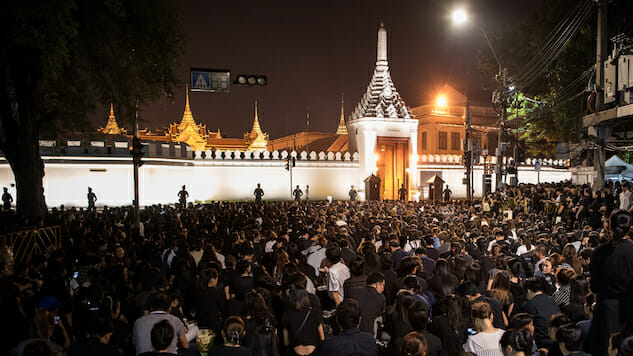What Thailand’s Year of Mourning Means for Visitors
Photo below by Leon Neal/Getty
His Royal Majesty King Bhumibol Adulyadej of Thailand was often described as a “father figure.” He came to the throne in 1932, making him the world’s longest reigning monarch at time of death two months ago, Oct. 13.
The royal role was largely ceremonial, with few official political duties, which allowed the King to serve as a unifier in troubled times. As Al Jazeera recently summarized, during his reign, Thailand witnessed 19 coup attempts, including another government overthrow in 2014.
For Thailand’s people, the King served as a source of calm and beacon through those uncertain times. To say he was beloved is an understatement.
Why is this important for visitors during this high tourism season? Context is key to understanding a destination and culture, especially during times of change. On Oct. 14, Thailand began an official one-year mourning period, including an initial 30-days of civic acknowledgement.
For the next year, public as well as private life in the country will be impacted. From the mountains of Chang Dao to the beaches of Phuket, tourism providers are receiving questions from visitors about how travel will be affected.
Misinformation has spread rapidly. And, while it’s true that Thailand will be a different country for travelers during this time, the degree of difference depends largely on your specific destination, desired activities, and expectations.
Here’s what is true and false:
1. It’s a Year Without Parties
FALSE.

Photo by Leon Neal/Getty
Shortly after the King’s passing, some travelers tweeted complaints about canceled full moon parties and ruined vacations. Festivals and high profile concerts were canceled during the first 30 days due to a government limit on entertainment venues and activities.
As of Nov. 14, organizers were back in action, although everyone expects festivities to be more subdued, with many imposing earlier than usual end times.
-

-

-

-

-

-

-

-

-

-

-

-

-

-

-

-

-

-

-

-

-

-

-

-

-

-

-

-

-

-

-

-

-

-

-

-

-

-

-

-











































